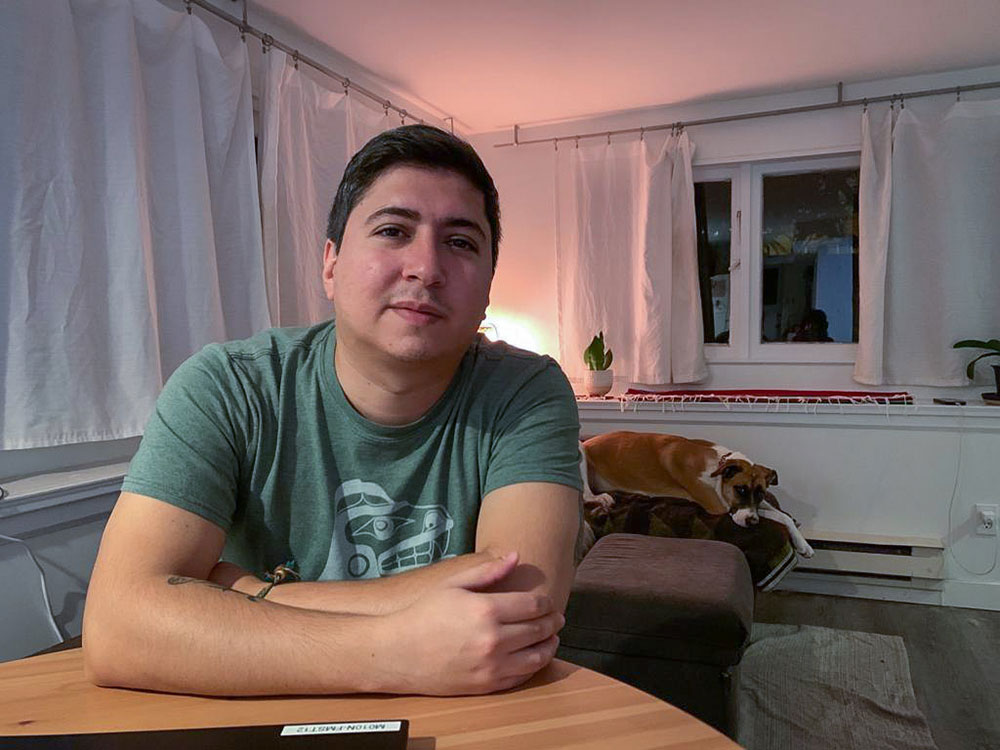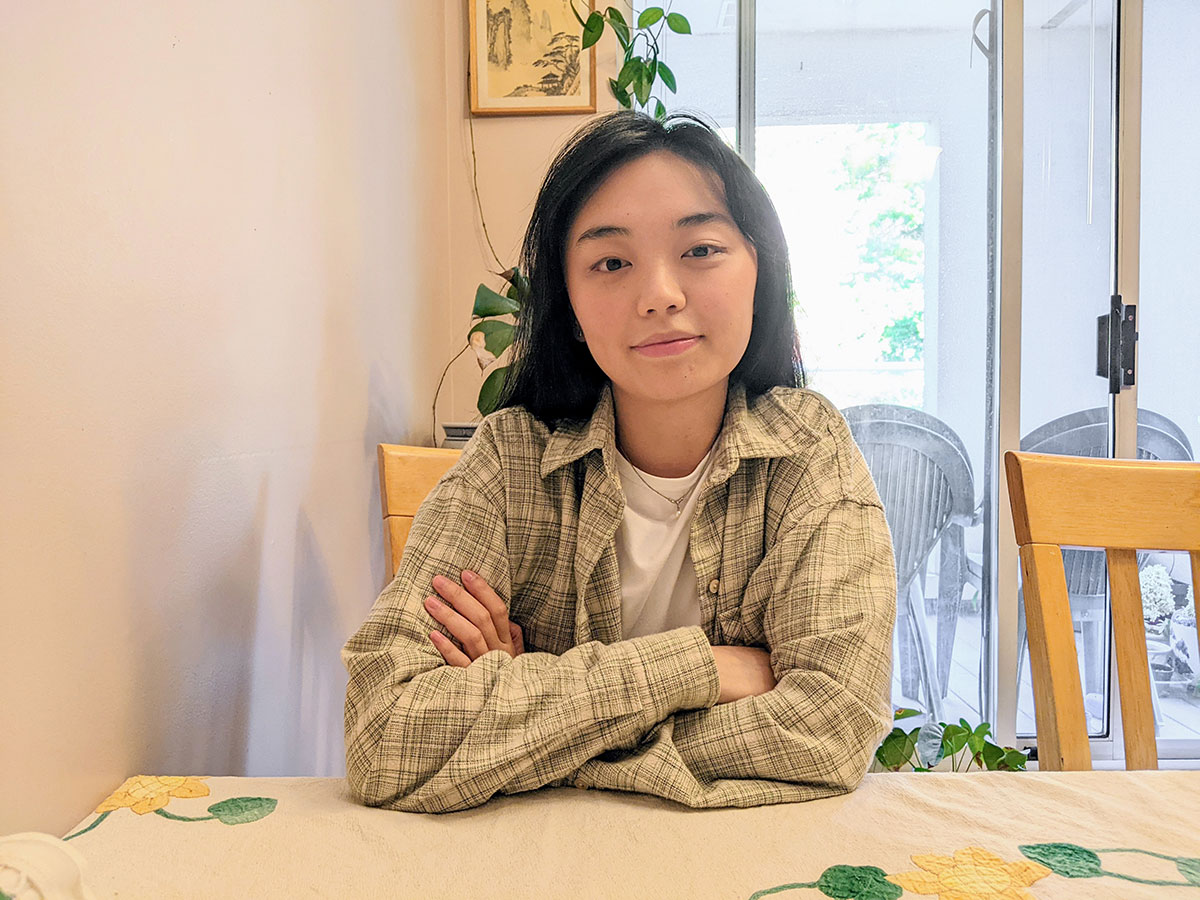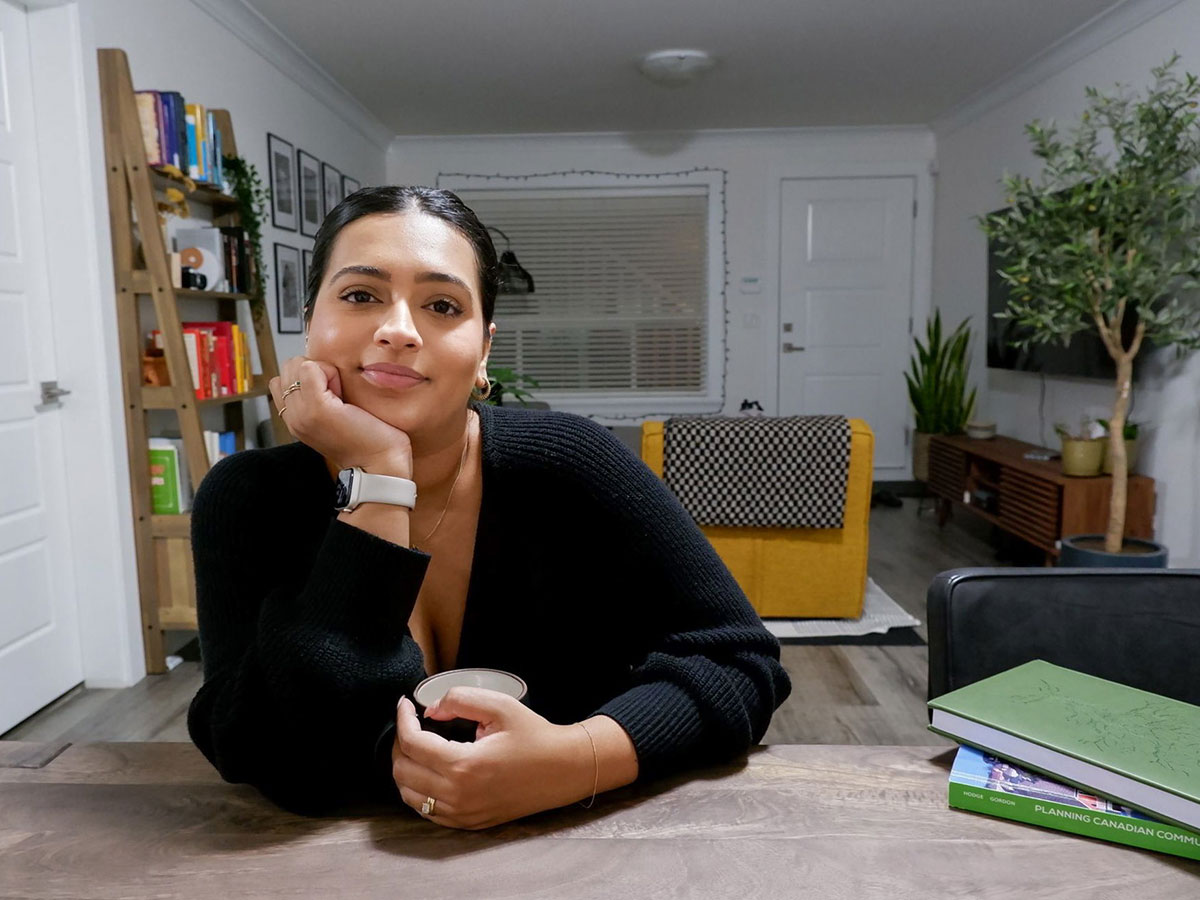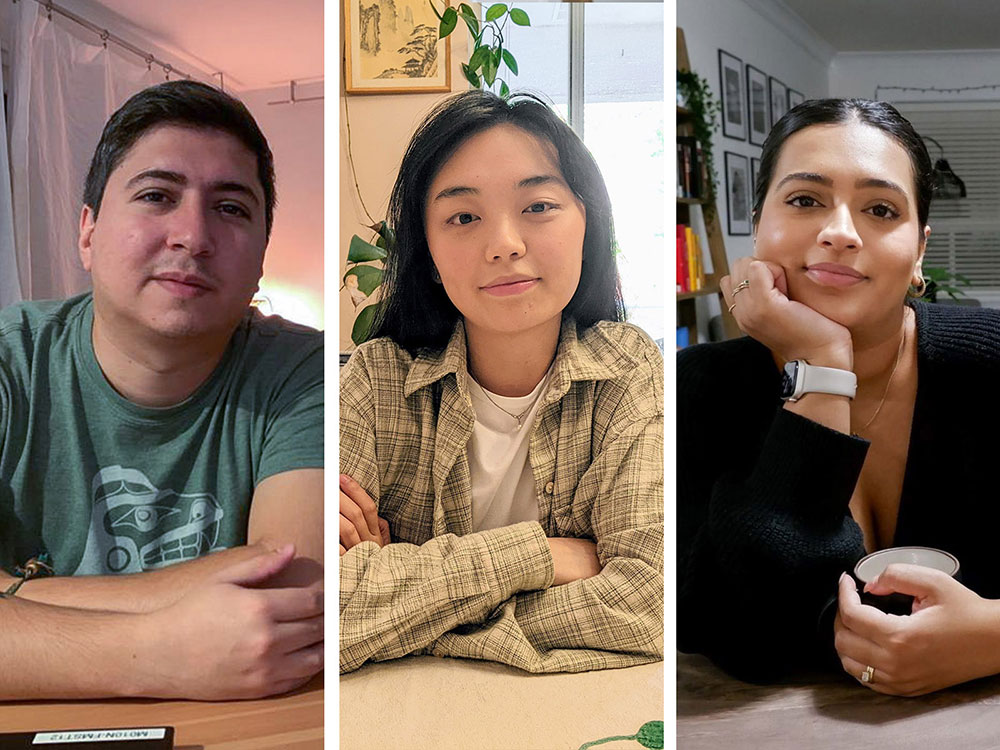“Everybody’s been calling me! Kennedy Stewart, COPE, ABC.”
Juan Treviño doesn’t know how these Vancouver election campaigners got his phone number. Still, he’s tickled by the fact that they’re calling him because as a permanent resident of Canada, he can’t yet vote.
When he tells the callers this, they aren’t fazed.
“You know, if you can’t vote, you can still donate,” the one from Stewart’s Forward Together party told him.
Treviño is a millennial in Vancouver. One local non-profit has called his cohort “generation squeeze” for having to face stagnant incomes, poor job markets and high costs for key needs like housing compared to older generations. (Not to mention hearing jabs about laziness and blowing all their money on avocado toast.)
As for gen Z coming up on their heels, the Globe and Mail recently crunched the data on how they’re faring with housing, jobs and debt. Spoiler: things have gotten even worse.
In 2019, The Tyee published the essays of five young students from Simon Fraser University’s Semester in Dialogue on Housing Futures. Treviño was one of them. They shared about living with parents in adulthood, renting basement suites and nightmarish evictions.
We decided to check in with a few of them — between ages 23 and 30 — on how they’re making it as young adults in a pricey part of the world, and how they feel about so many candidates this municipal election promising they’re going to make the future more affordable.
The race for rentals

Back in 2019, Treviño wrote about his challenges as an international student from Mexico by way of the U.S. trying to find housing in Vancouver. At that point he had gone through five apartments and 14 roommates in two years. He had just moved into a new unit — more than half underground — with his partner.
They chose a two-bedroom unit because his partner’s brother was planning a move to Canada. Treviño and his partner decided to rent out the second bedroom in the meantime, putting them in a strange position: that of renters, but also as “landlords.” He recalls the going rate at the time was $950 a month for similar sublet rooms, but they rented it out between $650 and $700: “We had this understanding that if we were struggling, other people were struggling too.”
“There was a column in the middle of the room,” said Treviño. “[Despite that], the response we got was overwhelming. Sometimes we got 30 responses in two hours. We didn’t know what to do. We had all these people telling us they were in precarious situations and they needed the space. We got responses from families.”
Since the pandemic hit, they’ve moved into two different homes.
The first was a two-bedroom condo apartment in downtown Vancouver that was a steal of a deal. It leased for $1,500 a month, when similar units averaged $2,500, according to the Canada Mortgage and Housing Corp. But there was a catch: it would soon be demolished for redevelopment.
As a result, the couple were already looking for their next home while living in their current one. What showings they visited had long lineups. Finding a suitable home became more difficult when they adopted a dog. But six months later, they found a two-bedroom basement in East Vancouver for $2,000.
“Ideally, we could have negotiated a lower rent,” said Treviño. But as an international student, he had developed a habit of not wanting to rock the boat. “You still have those insecurities that come with being an immigrant. You’re not going to do anything that could put yourself at risk. I didn’t want to jeopardize my opportunity to rent that place.”
Treviño has had his share of bad housing experiences, from a month of couch surfing to an eviction that resulted from a building manager deceiving him with a fake contract.
But then he started working at a settlement agency and became aware of the privilege he possessed compared to others, he said. Treviño met workers coming to Canada on temporary visas — many from Mexico like himself — whose housing was tied to employers, leading to situations of abuse.
His advice to candidates who get elected is to make sure city hall does a better job of reaching out to marginalized populations.
“The reality is: people don’t have time to engage,” he said. “Having better communication is important to me… with minorities, temporary residents or international students.”
And also, “We need a lot more housing.”
Rooming with parents in a pandemic

Rose Wu wrote her essay about what it was like to be Chinese Canadian in the middle of the fervour about foreign money heating up the local housing market.
Her parents had told her not to worry about it. “It’s not directed at us, we’re not rich,” they said. But Wu felt they’ve been lumped in with all Asian-looking people: why not blame the flow of wealthy capital within Canada instead?
Today, Wu is part of a growing percentage of young Canadians living with their parents. Thirty-five per cent of adults between the ages of 20 and 34 live with at least one parent, according to the 2021 census. Statistics Canada adds that this is especially common in cities near post-secondary institutions, so that young adults can save on rent.
This is the case for Wu, who is pursuing a master’s degree at the University of British Columbia.
There are a lot of benefits to the arrangement, said Wu. She had scouted out Vancouver’s rental market but decided she didn’t want to pay over $1,000 for shared accommodation and opted to stay with her parents instead. But it also meant giving up some independence.
“I really experience it when my parents are texting me, asking if I’m coming home early,” said Wu.
The pandemic also made it more challenging to live with parents and attend everything that school had to offer.
“My mom is immunocompromised. Everyone in my cohort was trying to bond and people threw parties, but I felt like I couldn’t go to them because I was living at home and I wanted to be extra careful about not contracting COVID and spreading it to my parents.”
Wu is even worried about catching it in class, as she’s part of a minority that still wears masks.
Looking at the promises this election that politicians are making to make the region more affordable, Wu is skeptical.
“It’s hard to feel optimistic,” she said. “Not just housing, but the future. A part of me has kind of accepted that this is how Vancouver housing is. My parents were interested in buying a place when I was 11 or 12. I’d follow along when my dad was looking at listings. Every weekend we’d drive to Port Moody and Coquitlam to see houses, and every year my dad was like, the bubble’s going to pop. It’s 10 years later, and a part of me has just kind of accepted it. As someone who’s lived in Vancouver for so long and hasn’t really seen much change, it’s hard to be hopeful.”
All in the family

Zariya Khan wrote her essay about weighing the pros and cons of living with her fiancee’s parents after marriage.
She concluded that she was a big fan of multigenerational living, though she still wondered how the arrangement would turn out for her.
“Obviously as a young person, and newlywed, there’s concern about how it would look like, never having experienced it before.”
When she finally moved into the basement suite of her in-law’s house in Surrey, the arrangement proved great.
“There’s nothing bad I can say about it,” she said. “The experience firsthand has made me an even bigger advocate of it today.”
She and her husband recently celebrated their first anniversary.
“We were a little skeptical, but we put our best efforts into decorating it and making it our home. We share a lot of the groceries we buy at Costco; it’s been sustainable practice as well to [avoid] waste. We also have a dog, so it’s been nice to be able to go upstairs for cuddles.”
Having their own separate unit in the house, as opposed to shared living quarters, was key to making it work.
“[My in-laws] have been so respectful of our boundaries. There’s always a knock on the door. We didn’t even need to discuss that, they just started doing it, which we really appreciate. We do go upstairs pretty regularly. There’s lots of family hangouts. It’s been really nice.”
The arrangement, and living with family before that, allowed the couple to save up money and look to buy a home. They were constantly outbid, but managed to purchase a pre-sale townhouse near the upcoming SkyTrain extension from Surrey into Langley.
“We definitely wouldn’t be where we are today without the support of family,” she said, who adds it’s a common story for many in her generation growing up in the city.
“But there’s a lot of concern with interest rates. We don’t know if we’re going to move in, sell it or rent it out. We were initially concerned if we would ever be homeowners. Now we’re homeowners, and the concern is if we can afford to continue being homeowners. It’s constantly an uphill battle.”
Housing is top of mind for Khan when she goes to vote this year. She doesn’t like parties that have been in power for too long, preferring underdogs with good solutions to unaffordability instead.
She’d especially like to see politicians loosen up single-family zoning. About 10 per cent of Surrey households are multigenerational, twice as common when looking at the region’s households as a whole. The arrangement is especially common in Surrey’s South Asian immigrant households.
There are a lot of “McMansions” in Surrey, says Khan, and she’d like to see more units on each property so that families can live together and enjoy shared spaces, but with a “decent amount of boundaries.”
Khan, who is studying to become an urban planner outside of a full-time day job as a public servant, is hoping to work on the housing crisis firsthand one day.
For municipal elections, turnout is always low. Only 42 per cent of voters took part to elect their mayors and councils in 2018, while 75 per cent turned out to elect their MPs in 2021.
So here’s her final bit of advice for young people in Surrey and elsewhere in the expensive region worried about their futures: “Go out and vote.” ![]()
Read more: Municipal Elections 2022, Housing

















Tyee Commenting Guidelines
Comments that violate guidelines risk being deleted, and violations may result in a temporary or permanent user ban. Maintain the spirit of good conversation to stay in the discussion.
*Please note The Tyee is not a forum for spreading misinformation about COVID-19, denying its existence or minimizing its risk to public health.
Do:
Do not: